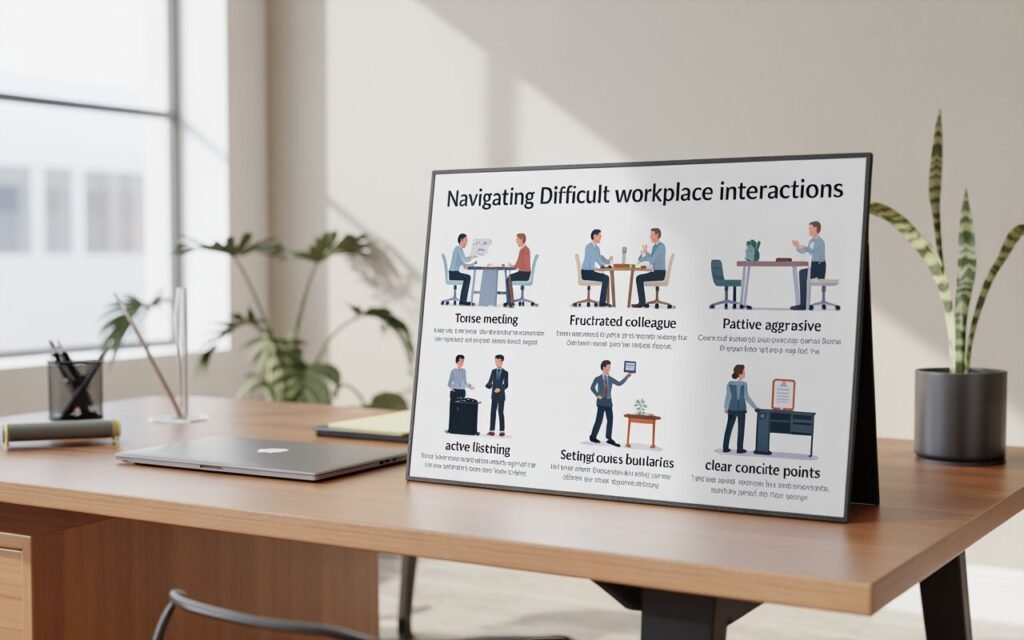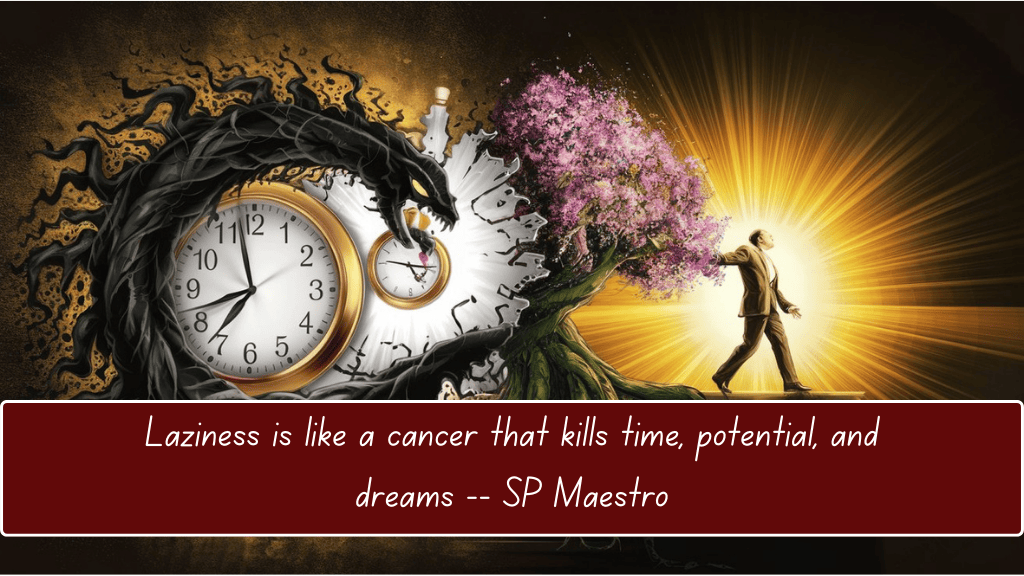Are you tired of being caught off guard by difficult people in your personal or professional life? Dealing with challenging individuals can be emotionally draining and professionally damaging if not handled correctly. But what if you could transform these difficult interactions into opportunities for growth and success?
Why Mastering Smart Responses to Difficult People is Crucial
In today’s fast-paced world, we encounter challenging personalities daily. Whether it’s a micromanaging boss, an argumentative colleague, or a dismissive family member, knowing how to respond effectively can make the difference between success and frustration.
Research shows that people who master these communication skills are 40% more likely to advance in their careers and report higher job satisfaction. Let’s explore the most effective strategies for handling difficult people with grace and confidence.
1. When They Interrupt You: The Reset and Redirect Method

When someone constantly interrupts you, it’s not just rude—it’s a power play. Here’s how to handle it:
Your Response: “I’ll finish my point, then I’d love to hear your thoughts.”
This approach works because it:
- Maintains your authority
- Shows respect for their input
- Sets clear boundaries
- Keeps the conversation productive
2. When They Dismiss Your Ideas: The Redirect and Reframe Strategy

Dismissive behavior can derail creativity and collaboration. Here’s how to handle it:
Your Response: “That’s one approach. Here’s another way to look at it.”
This response is powerful because it:
- Doesn’t directly confront the dismissal
- Offers alternative perspectives
- Maintains respect for different viewpoints
- Keeps the discussion moving forward
3. When They Get Aggressive: The De-escalation Technique
Aggressive behavior in any setting is unacceptable. When faced with someone who’s becoming hostile:
Your Response: “I’m happy to continue this conversation when we can keep it productive.”
This approach:
- Sets clear boundaries
- Prioritizes productivity over conflict
- Demonstrates professional maturity
- Gives the other person a chance to reset
4. When They Try to Dominate: The Inclusive Approach

Dealing with domineering personalities requires finesse:
Your Response: “Let’s make sure we’re both heard. I’d like to share my perspective too.”
This response:
- Acknowledges their input
- Asserts your right to be heard
- Promotes balanced communication
- Maintains respect for all parties
Smart Suggestions

Summer Fruits for Diabetes Patients : 7 Amazing Essential Options for Ultimate Blood Sugar Control
Read More »5. When They Make it Personal: The Professional Boundary
When someone tries to make a professional discussion personal:
Your Response: “Let’s keep this about the issue, not each other.”
This strategy:
- Redirects focus to the actual problem
- Maintains professional boundaries
- Prevents escalation
- Shows emotional intelligence
6. When They Keep Pushing a Losing Argument: The Redirect Method

When someone won’t let go of a point that’s clearly not working:
Your Response: “It sounds like we see this differently. What’s the best next step?”
This approach:
- Acknowledges different perspectives
- Focuses on solutions
- Moves the conversation forward
- Avoids prolonged arguments
7. When They Refuse to Engage Logically: The Evidence-Based Approach
For those who avoid logical discussion:
Your Response: “What evidence supports that? Let’s look at the facts.”
This response:
- Demands rational discourse
- Focuses on objective information
- Prevents emotional manipulation
- Maintains professional standards
8. When You Need to Shut it Down Professionally: The Respectful Exit
Sometimes, you need to end a conversation professionally:
Your Response: “I value this discussion, but I don’t think we’re making progress. Let’s revisit later.”
This approach:
- Shows respect for the discussion
- Acknowledges the impasse
- Provides a future opportunity
- Maintains professionalism
9. When They Try to Control the Narrative: The Refocus Strategy

When someone tries to hijack the conversation:
Your Response: “Let’s refocus on the main goal here.”
This response:
- Brings everyone back to the purpose
- Maintains leadership
- Prevents manipulation
- Keeps discussions productive
10. When They Are Chronically Difficult: The Boundary Setting Approach
For consistently challenging individuals:
Your Response: “I’m happy to continue when we can be respectful.”
This final strategy:
- Sets clear expectations
- Maintains self-respect
- Provides clear consequences
- Protects your well-being
The Psychology Behind Smart Responses to Difficult People
Understanding why these responses work is crucial. Difficult people often use these behaviors to:
- Gain control in situations
- Mask their own insecurities
- Divert attention from their weaknesses
- Test your boundaries
By maintaining professionalism and using these smart responses, you take back control while maintaining relationships.
When to Use Each Strategy

Different situations call for different approaches:
High-stakes meetings: Use evidence-based approaches and boundary-setting Daily interactions: Focus on redirect and reframe strategies One-on-one conversations: Employ inclusive approaches and de-escalation Team settings: Utilize refocus strategies and professional boundaries
Building Your Confidence When Dealing with Difficult People
Mastering these smart responses requires practice and confidence. Here are some ways to build your skills:
Start with low-stakes situations and gradually work your way up. Practice these responses in the mirror or with trusted friends. Remember, the goal isn’t to win every argument—it’s to maintain your professionalism and achieve your objectives.
The Long-term Benefits of Smart Responses
When you consistently use these strategies, you’ll notice:
- Reduced stress in challenging situations
- Improved professional relationships
- Greater respect from colleagues
- Enhanced leadership capabilities
- Better work-life balance
- Increased confidence in all interactions
Conclusion: Transform Your Interactions with Difficult People

Mastering smart responses to difficult people isn’t just about surviving challenging conversations—it’s about thriving in them. These 10 strategies will help you maintain professionalism, protect your well-being, and achieve your goals even in the most challenging situations.
Remember, the key to success is practice. Start implementing these responses today, and watch how your interactions transform from stressful encounters to opportunities for growth and success.
తరచుగా అడిగే ప్రశ్నలు
A: Practice these responses regularly and focus on the underlying principles. The more you use them, the more natural they become.
A: If someone becomes more aggressive, it's best to remove yourself from the situation and address it with appropriate authorities or supervisors.
A: These strategies work in any relationship, but may need slight adjustments for personal relationships where you want to maintain closer connections.
A: Consider the context, your relationship with the person, and the stakes involved. Start with the most diplomatic approach first.
A: Start with small, low-stakes situations and build your confidence gradually. These responses are designed to reduce confrontation, not increase it.
Other interesting content you may like
-
Neuroplasticity: 5 Steps to Rewire Your Brain for Success
-
Which Utensil is Healthiest for Eating? Complete Guide to 9 Utensils and Their Health Effects
-
18 Laws of Human Nature: Ultimate Guide to Decode People Like a Pro
-
His Holiness Beloved SP Maestro MahaaGURU Ji Invited as Special Guest for Hanuman Chalisa Meditation in London
-
1600+ Days of Continuous Yagnas and Counting: An Ongoing Mission for Global Harmony
-
Journey of His Holiness Beloved SP Maestro MahaaGURU Ji
-
Free Medical Camp Serves 150 Residents in Ramalakshmana Pally
-
What Are Mudras? 7 Sacred Hand Positions That Powerfully Transform Your Well-Being
-
7 Rules for Charisma: Proven Secrets to Become Magnetic in Any Room
-
Healing the Inner Child: 4 Powerful Trauma Types & Affirmations to Transform Your Life
Our other websites for more spiritual insight
Explore Inspiring Spiritual Websites
Aumaujaya.org
A spiritual website filled with inspiring content to help you deepen your understanding of mindfulness and living in the present. Explore their teachings to enrich your journey toward inner peace.
Visit Website →Auysa.org
A platform dedicated to motivating and uplifting the spirit of youth. If you’re looking for ways to inspire younger generations to embrace the present, this is a fantastic resource.
Visit Website →Shreeprabhu.org
A spiritual website with inspiring content centered around the idea of “Universal Oneness.” Their teachings align beautifully with the art of being present and finding happiness in every moment.
Visit Website →


